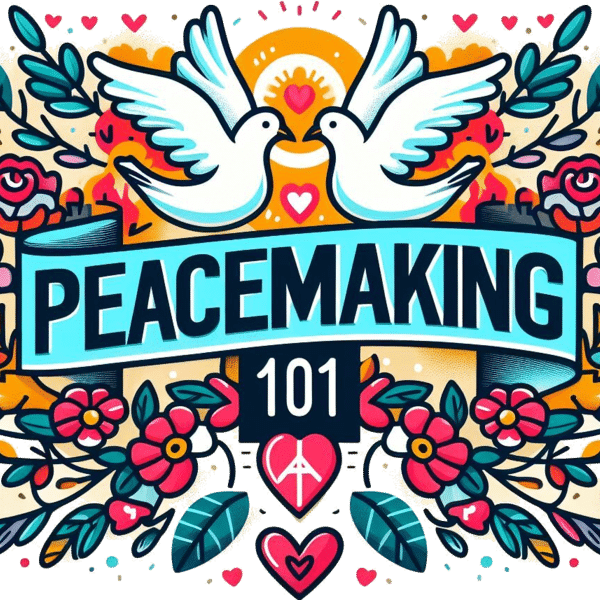Feeling like a deer in headlights when conflict flares up? You’re not alone! This video dives deep into the science behind our fight-or-flight response, explores how past experiences shape our conflict styles, and reveals the surprising psychology behind why some confront, some avoid, and some freeze when faced with a disagreement. Ready to ditch the drama and approach conflict with confidence? Click play and unlock the secrets to becoming a master peacemaker!
P.S. Share this video with your friends and family who could benefit from learning peacemaking skills. We can all create a more peaceful world together!
Summary of Physiological Responses to Conflict Video
Main idea: This lesson explores how humans naturally approach conflict situations, focusing on physiological responses and common conflict styles.
Key Points
- Fear and stress responses: When faced with conflict, our bodies experience a fight-or-flight response triggered by the amygdala in the brain. This can lead to irrational behavior and difficulty thinking clearly.
- Trial and error learning: We develop habitual ways of handling conflict based on past experiences (conflict styles). These styles may not always be effective.
- Understanding conflict styles: Knowing your own and others’ conflict styles can help you approach disagreements more effectively.
- Gray’s Biopsychological Theory: This theory proposes three stress response systems: Fight-Flight-Freeze (FFFS), Behavioral Approach System (BAS), and Behavioral Inhibition System (BIS). These systems explain why some people tend to confront conflict (BAS), avoid it (BIS), or freeze up (FFFS).
- Motivation matters: Our perception of potential rewards and costs influences whether we choose to approach or avoid conflict. Training in conflict resolution can help us see more potential benefits to engagement.
Overall takeaway: Understanding our natural responses to conflict and the different ways people engage with it can help us manage disagreements more effectively and constructively.
Additional Notes
- The podcast mentions PTSD and domestic violence as examples of situations where the amygdala’s short-circuit response can be problematic.
- The lesson encourages listeners to apply the information to their own lives and develop their conflict resolution skills.
10 Reflection Questions based on the Podcast Lesson:
- Identify your conflict style: Do you typically approach, avoid, or freeze in conflict situations? Can you think of past examples that illustrate your tendency?
- Analyze your fear response: How does your body react physically and emotionally when faced with conflict? Do you notice any changes in thoughts or behavior?
- Challenge your automatic reactions: Are there situations where your default conflict style might not be the most effective? Can you brainstorm alternative approaches you could try next time?
- Consider the rewards and costs: When evaluating a potential conflict, what do you perceive as the potential benefits and drawbacks of engaging? Does your perception vary depending on the situation and people involved?
- Revisit past conflicts: Think of a past conflict you handled well. What skills or strategies did you use that contributed to a positive outcome? Can you apply those same techniques to future situations?
- Empathy and perspective: Can you recall a time when someone else’s conflict style clashed with yours? How did it impact the situation? How could you approach similar situations with more empathy and understanding?
- Communication styles: Reflect on your communication style during conflict. Do you tend to be assertive, passive, or aggressive? Are there ways you could adjust your communication to improve conflict resolution?
- Breaking the cycle: Have you noticed any unhealthy patterns in your past conflicts? What steps could you take to break those patterns and establish new, more constructive habits?
- Learning from others: Who do you know that handles conflict with grace and effectiveness? What could you learn from their approach? Could you observe or ask them for advice?
- Building your skillset: What skills or knowledge would you like to develop to become a more effective conflict mediator or peacemaker? Are there resources or training opportunities you could explore?
These are just a few potential reflection questions based on the information provided. The most valuable questions will be specific to your own experiences and learning goals. Take your time, delve deeper, and use these prompts to ignite your personal growth in conflict resolution.
